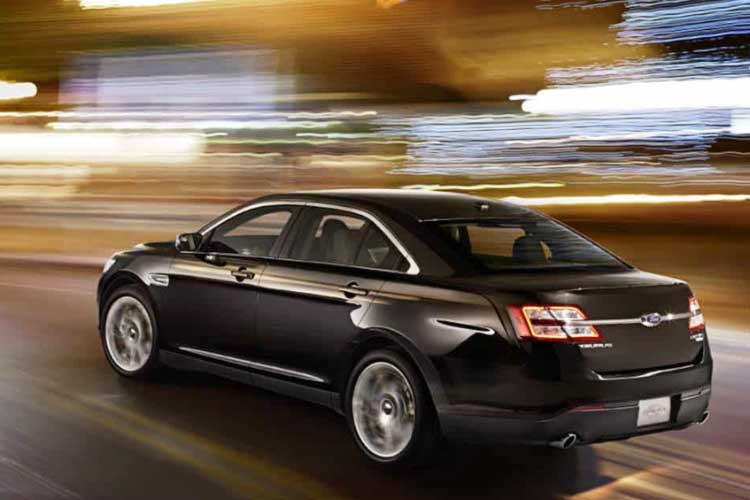Whether racing or just a usual drive, every driver accelerates at some point in their journey. When accelerating, sometimes the temperature gauge will rise significantly. If the rise doesn’t happen when idling or cruising, it can raise several questions.
But why does a car overheat only when accelerating? A vehicle that overheats only when accelerating can signify problems with the car’s radiator. Also, the cooling system can have issues like leakages or air pockets. A low coolant level and a stuck thermostat might also be responsible.
Overheating when accelerating is a problem that can be confusing since acceleration is part of driving. Read on to learn why this happens and ways you can solve it.
Why Does a Car Overheat When Accelerating?
The problem where the car overheats when accelerating is common in various vehicles, as reported over the years. One thing in common in their reports is that the engine temperatures remain moderate when cruising or idling.

Some drivers claim the problem shows up when they accelerate hard, especially on a racing track. This shows that the engine gains the temperature only when they work harder to produce more power.
While engine overheating when the car accelerates hard is likely, slight accelerations shouldn’t cause overheating. Therefore, various parts responsible for keeping the engine temperature under control are first to check.
The following are the possible causes of the car overheating when it accelerates.

1. Passively blocked Radiator
The radiator is responsible for cooling the antifreeze/coolant that runs throughout its fins. The air from the atmosphere cools the coolant before it returns to the engine to release some of its heat.
Dust and debris from the environment can get on the radiator and clog the fins partially. The radiator might be passively blocked because the coolant still cools when the car is not accelerating. Radiators prone to clogging have overheating problems during hard acceleration.
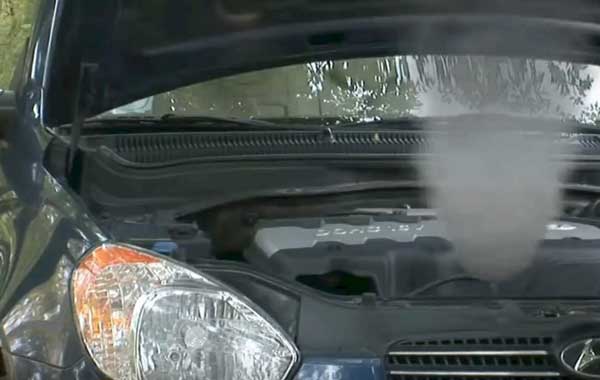
Fixing:
Fix the radiator blockages using a cleaner to remove firmly stuck debris. Afterward, wash it off with a pressure hose, like a garden hose or a pressure washer.
2. Air in the cooling system
Since the cooling system is responsible for maintaining the engine’s temperature, it can cause overheating. Due to low pressure on the radiator cap or leakages, air bubbles can get into the cooling system.
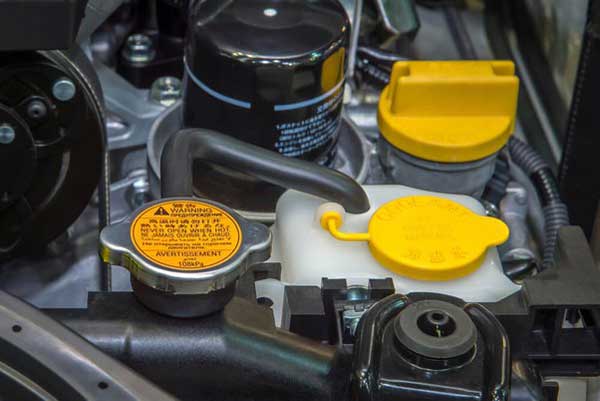
Fixing:
The air in the system causes air pockets which can cause blockages leading to overheating. When air pockets are in the cooling system, you should bleed them out using the system’s bleed bolt.
3. Failed Radiator Fan
The fans kick in when the engine begins to heat up, especially during hard acceleration. If a fan is failing, either by running slower than needed or stopping, it can allow the engine to overheat.
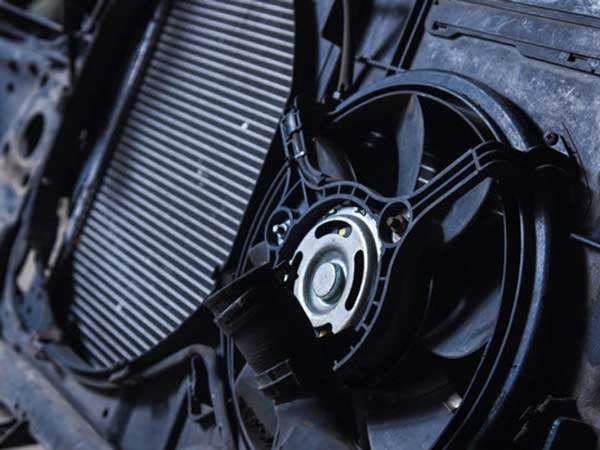
Fixing:
Since fans receive a signal from the vehicle’s computer, which gets it from the coolant temperature sensor, check the sensor first. Repair the fan’s motor, switch, or relay, or if they still fail, replace the fan.
4. Low coolant level
The cooling system works best when the coolant in the radiator is sufficient and tightly pressured. Adequate coolant ensures the cooling system efficiently cools the engine when needed and disperses heat at the radiator.
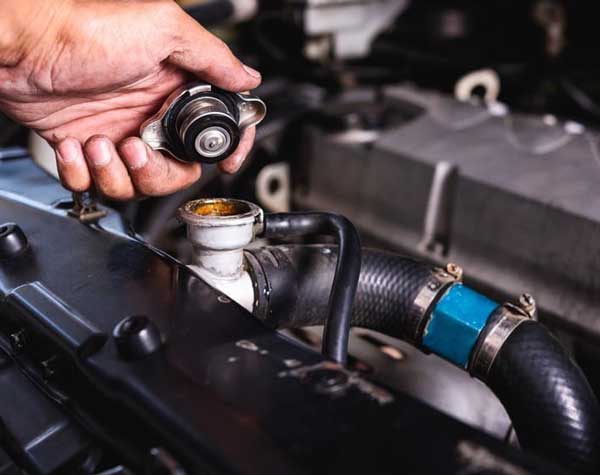
Fixing:
With low coolant, when accelerating, the engine receives insufficient antifreeze to cool it, therefore overheating. Refill the coolant as soon as possible to avoid further damage to the engine.
5. Stuck Thermostat
A thermostat ensures the engine warms up effectively during cold startup by recirculating the warm coolant. After the engine reaches its optimal temperature, the thermostat opens to let in colder antifreeze.
If the thermostat is partially stuck, the antifreeze running to cool the engine can be less effective. With the hard acceleration where the engine produces much heat, the low coolant can allow it to overheat.
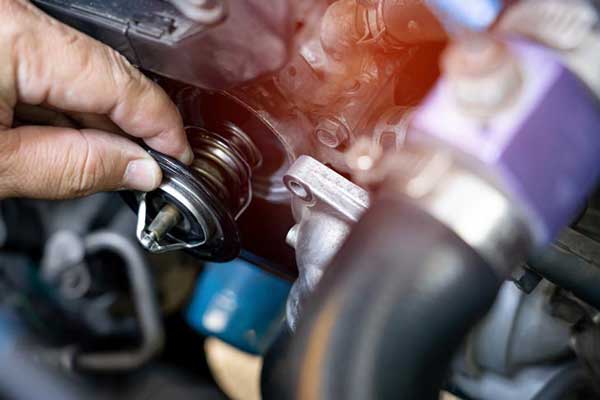
Fixing:
A thermostat is repairable, but it’s often best to replace it for a definite fix. A thermostat replacement can cost between $150 and $300, labor included.
Diagnosing a Car Overheating Problem Only When Accelerating
Since the overheating problem when accelerating can have other possible causes, it’s best to diagnose the car for clarity. You can perform the diagnosis or get your mechanic to do it for you.
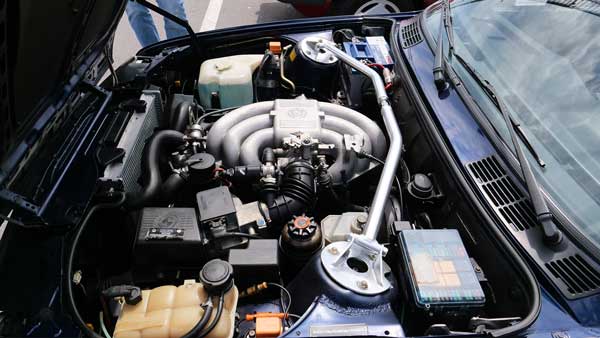
Following are some diagnoses to perform when your vehicle has these problems.
- Use an OBD2 scan tool to check for diagnostic messages and codes on the powertrain control module related to overheating
- Check for coolant leakages on the horses and around the radiator cap
- Observe the vehicle’s fans when the engine starts if they run
- Check the radiator, and if there are any gagging noises, the coolant might be low or has air pockets.
- Observe the tailpipe for the color of the smoke when the car is at operating temperature. There should not be white smoke or coolant leakage.
- Use an aftermarket gauge to observe the engine temperature in case of a failing sensor.
Additional Tips Help Fix Overheating Problems When Accelerating
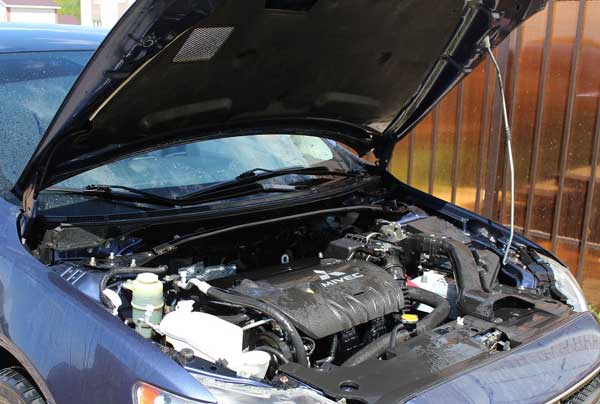
Sometimes the overheating problem isn’t solved even after replacing numerous parts in the cooling system. Therefore, you can use some tips shared below to fix the problem.
1. Install a larger radiator
If your engine still overheats after trying all the remedies, you can use a larger aftermarket radiator. A larger radiator may help reduce overheating of your car.
2. Install a powerful radiator fan
A more powerful radiator fan provides the engine and the cooling system with more cold air. The extra air is fruitful, especially if the user has a tuned engine, requiring more cooling.
3. Oil Cooler
An oil cooler is a component that has tubes and fins that allow airflow to pass through and cool oil. Use an oil cooler to keep the engine at optimal temperatures if your vehicle doesn’t have one.
If you’re experiencing car overheating issues, you may be interested in our articles on car overheating after replacing a radiator and car overheating when the AC is on. These articles provide valuable information and insights into the causes, symptoms, and solutions for these common issues. Whether you’re dealing with overheating while accelerating or under other circumstances, our team at Car Problem Solved is here to help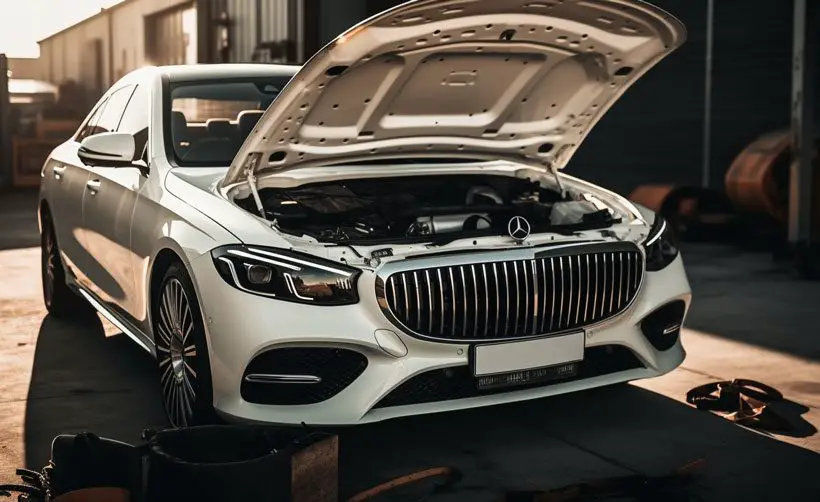
FAQ
Some questions regarding the topic and their answers are given below to clarify if any confusion remains.
When the vehicle begins overheating, it’s best to park and let it cool down for some time. However, you can avoid accelerating hard and drive to a repair shop to get it checked out.
Opening the heater can help an overheating vehicle remain cool when accelerating. However, it’s disregarded by most professionals as it risks damaging the engine.
A mechanic can charge you between $80 and $300 to diagnose the overheating problem. You can take the vehicle to a repair store or your dealer for this test.
Bottom Line
As the hottest part of a vehicle, the engine is often expected to gain temperatures regularly. However, if it gets hotter only when the car is accelerating, it can signify a problem. To be sure, it’s best to diagnose the problem to learn the possible reasons.
The article also covers some of the other causes and their solutions. Moreover, if nothing works, you can consider the tips shared to help keep the engine cool.
